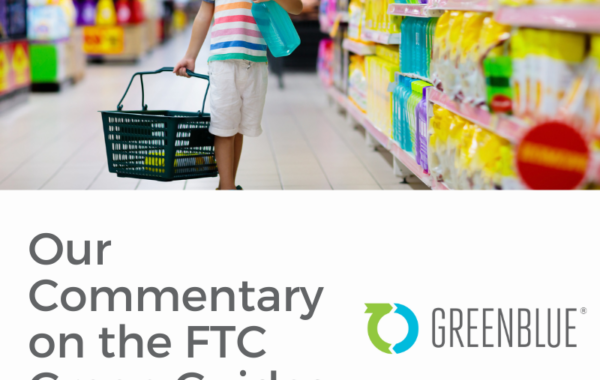October 21, 2021
The Sustainable Packaging Coalition (SPC) met virtually on October 5th and 6th, 2021, for the annual members-only conference, SPC Advance. This year’s event featured three tracks:
- Policy and Extended Producer Responsibility (EPR),
- Innovation and Trends, and
- Regenerative and Renewable.
Each track was packed with content, and the main stage sessions highlighted perspectives on climate change and the need for collective action.
Policy and EPR
Sessions in the policy track included quick overviews of the history of EPR and the concept of individual producer responsibility (IPR), deep dives into eco-modulation and packaging consultations, and panel conversations on engaging stakeholders in policy development and the role of container deposit systems. The diversity of session topics speaks to the complexity of packaging policy and the many considerations that contribute to effective legislation.
Dominic Hogg, Director of Equanimator, discussed the realities of EPR in driving improved recycling rates. He recognized that improving rates depends not only on well-written policy, but also on all the other initiatives at varying levels of government that support waste collection and infrastructure. While some sessions focused on the approaches taken abroad, the audience also heard from companies and non-profits working to figure out what approach will work best in the United States, and how to work together with governments. As Rachel Goldstein of Mars, Inc. put it when discussing the necessary collection improvements and infrastructure development, “No one actor, no one position in the value chain is going to be able to move this system by themselves, so partnership, again, is really quite critical.”
Innovation and Trends
The Innovation and Trends track presented a mix of new technologies and emerging developments in packaging. This broad category included sessions on mono-material flexible packaging solutions, reusable packaging pilots, and understanding the role of packaging in food waste. Increasing the use of post-consumer recycled (PCR) content was touched on in several panels and interviews, as companies with ambitious PCR goals shared what they are doing to achieve those targets.
Hugo Menilo of Unilever detailed the company’s journey to implement increased PCR content in certain products, and further stressed the importance of collaboration. “The partnerships and the combinations with other entities are very important,” he said, “If you think you can do it alone, you’re not thinking big enough.” Kyla Fisher, from the US Chamber Foundation, noted the importance of partnerships in addressing innovation and funding gaps, but also emphasized the need to shift the circularity conversation away from diversion and towards remanufacturing materials for their highest and best use.
Regenerative and Renewable
The third track kicked off with an introduction to regenerative development from Bill Reed of Regenesis Group. Reed emphasized the need to work with systems, not things, and to view potential instead of problems. The track also included a refresher on biodiversity and the importance of ecosystems, narrated by Shea Wales, SPC Project Coordinator, in an effort to get companies to think about the importance of conserving and restoring the natural ecosystems we depend on.
A conversation with Kathryn Fernholz brought nuance to the subject of wood and non-wood fibers. Fernholz highlighted the need to balance land use and understand that the sourcing of fibers can change the value of forest or agricultural land. “Diverse forest products markets, including paper and packaging, help support private landowners making the decision to keep forests and to invest in the stewardship of those forests,” she explained. Other sessions in the track highlighted paper-based packaging innovations, the evolution of renewable foams, and the investment needed to strengthen and scale composting infrastructure.
SPC Innovator Awards Ceremony
Olga Kachook, SPC Senior Manager, took the virtual stage under flashing lights to present the winners of the SPC Innovator Awards. The five winners fell into the categories of Responsible Sourcing, Design Optimization, Food Waste Prevention, and Recovery; and all reflected the leadership of SPC members in driving change towards more sustainable packaging options. For a full list of SPC Innovator Award winners and finalists, visit https://sustainablepackaging.org/awards/.
Main Stage Sessions
At the start of the main stage session on day one, SPC Executive Director Nina Goodrich took the opportunity to welcome members and highlight the recent work of the SPC. Goodrich’s comments also touched on the bigger picture of climate change, how packaging fits into it, and resources to help companies and individuals work towards solutions. These themes continued into both mainstage interviews.
Dr. Katharine Hayhoe, climate scientist and author of Saving Us: A Climate Scientist’s Case for Hope and Healing in a Divided World, had a clear message: we need to activate. At the beginning of the interview, she asked the audience to submit one word reflecting how they feel about climate change. The answers were stark: concerned, anxious, discouraged. The interview focused on the importance of moving past fear and towards action. She stressed the need to talk about climate change with those around us, but not from a place of shame or alarm. Instead, she encouraged the audience to connect with people on what they care about, and then connect what they care about to the climate. At the end of her talk, Dr. Hayhoe again asked for words from the audience, and there was a clear shift in responses: inspired, empowered, still a little overwhelmed and frightened, but overall, more encouraged to take action.
Tara Houska, an indigenous attorney and founder of Giniw Collective, joined the conference from the front lines of a resistance camp along the proposed Line 3 pipeline route in northern Minnesota. Houska spoke of needing to go beyond discussion and data to connect to the real impacts of climate change. “So many folks are engaged in this discussion of climate crisis and statistical analysis of climate crisis,” she noted. However, she emphasized that “in real time these things are occurring to real people, and that distancing that’s created of data is very different when you’re in one of those places that’s being exploited and extracted from.”
Houska’s outlook provided a necessary juxtaposition to the conference content. “Climate change is here, it’s in our backyards, and you can’t look away from it, and all the talking and the policy changes and the proposed legislation – it’s just not happening in a way that’s even close to responding to the urgency of what’s right in front of us.” Her message centered on recognizing the earth as a relative, and changing that perspective by focusing on life and relationships over metrics. Truly understanding this relationship and what’s at stake will help foster the sense of urgency that the climate crisis demands.
The day two main stage continued the theme of shifting perspectives. Kelly Cramer, Director of Program Management and How2Recycle, interviewed Bloomberg Opinion columnist and author, Adam Minter. Minter discussed his experience of living overseas and viewing the impacts of the “waste” trade firsthand. He was quick to point out that waste is traditionally defined by those who dispose of it, but that is an antiquated and ethnocentric way of thinking. Individuals who purchase disposed-of products do so because they see value in them, and there are economies that have developed around secondary markets for products and components. So much of sustainability, he emphasized, is dependent on geographic context. He ended on a note of optimism, reflecting on the conscious consumption trend he’s observed in emerging markets due to the prevalence of and proximity to environmental degradation.
The last interview of the conference highlighted the interconnectedness of environmental sustainability and social change. Tom Pollock, Associate Director, SPC Forest Products, interviewed Gonzalo Munoz, Founder and CEO of TriCiclos, and High-Level Champion for Chile for United Nation COP 25. Describing his journey into a career of impact, Munoz shared his realization that “we have a fraction of time [on this planet]. We can decide whether to spend it worthless or generating impact.” Munoz noted the change in companies over the past few decades, where the business case for sustainability is being recognized and appreciated. A big part of this shift is unblocking the blind spots that historically neglected environmental and social externalities. “When money gets aligned with climate action, circularity, social impact… then you will see a lot of unusual suspects for this agenda moving very, very happily into those topics,” he noted. In addition to aligning business drivers, he emphasized the need to build trust and work together. Similar to other speakers, Munoz urged the audience to commit to making drastic and meaningful action to address the climate crisis.
Optimistically Activating
Overall, the event sessions were filled with messages of optimism and examples of companies and individuals taking action. SPC Advance 2021 highlighted the great work being done while identifying the work that still needs to be accomplished. Goodrich noted that the individuals from SPC member organizations are the ones pushing for sustainable changes every day, and she recognized how challenging that can be. “Hopefully,” she said of the conference, “we’ve provided some food for thought to help motivate the motivators.”





